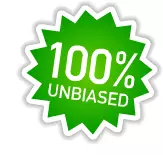 Too many Americans today are basing their opinions on prescription drugs solely on advertising by drugmakers. You should never get all your information from pharmaceutical commercials, Web sites, or drug labels.
Too many Americans today are basing their opinions on prescription drugs solely on advertising by drugmakers. You should never get all your information from pharmaceutical commercials, Web sites, or drug labels.
Why, you might ask? Aren’t drugmakers required by the FDA to tell the truth about their medications?
The answer is, yes and no. Drugmakers are required to tell you about the potential side effects and drug interactions associated with their medications. But the FDA recently warned drugmakers that they are not emphasizing these enough in their ads.
An even more critical omission from drug ads is that they don’t tell you that there are often less expensive generic drugs that are just as effective.
So for unbiased information on drugs or treatments you are interested in learning more about, here are four independent sources that have no ties to, and accept no advertising from, pharmaceutical companies:
1. Consumer Reports Health. Consumer Reports is perhaps the single best source for unbiased drug information, because it has never accepted advertising and is operated by the nonprofit Consumers Union. To access Consumer Reports information, you do have to pay a small subscription fee (less than $20 per year), but it is well worth the price.
2. RxFacts.org. RxFacts.org, the Independent Drug Information Service (iDiS), provides doctors and patients with an evidence-based, non-commercial source of the latest findings about prescription drugs. The Independent Drug Information Service is sponsored by the Pennsylvania Department of Aging, and its clinical content is created by an independent group of physicians and researchers on the faculty of Harvard Medical School. The only downside to this resource is that only a limited number of drugs are currently overviewed on the site.
3. Wikipedia. The mainstream media has done a disservice to Wikipedia by focusing on errors in its entries. Wikipedia is the seventh most visited site on the Web for good reason. Independent surveys have shown that, on average, Wikipedia is similar in accuracy to other encyclopedias. And as an ad-free resource that is not influenced by the pharmaceutical industry, it has great value as a starting point for your research. If you are unsure about any of the information you see in a Wikipedia entry, click on the footnotes in that entry that are required to document facts — which will generally send you to the original source material.
4. eDrugSearch.com’s Online Pharmacy Dictionary. As a free service to members, eDrugSearch.com provides an online pharmacy dictionary of more than 200 commonly prescribed drugs. When you click on an individual drug name, you’ll see news updates on the drug from the Associated Press and other sources, as well as drug information from the FDA. Members of the eDrugSearch.com Community can also view member drug reviews and ratings for more than 100 medications.
-
-
Search Blog Posts
-
Save Even More Money!
-

-
Trending Content
-
Watch our YouTube Video
-
Categories
Big Pharma Buy prescriptions online Canadian drugs Drug costs Drug reimportation Drug safety eDrugSearch.com FDA Health 2.0 Healthcare100 Healthcare blogs Healthcare solutions Low-cost drugs Medicare Part D Merck Online pharmacies Online pharmacy safety Pfizer Pharma bloggers Pharmaceutical companies Pharmaceutical marketing Pharma cheerleaders Prescription drug abuse Prescription drug prices Prescription drugs Prescriptions Wal-Mart drug plan -
Blogroll
- Bullet Wisdom
- Bulverde Business Directory
- Christian Counseling San Antonio Tx.
- Christian Schools in San Antonio Texas
- Christian Social Network
- Christians United for Israel
- DrugWonks.com
- Eye on FDA
- GoozNews
- Health 2.0
- Hunting Forum
- In the Pipeline
- Jesus Christ Our King
- John Hagee Ministries
- Kevin, M.D.
- Local Search Marketing
- My $299 Website
- Pharm Aid
- Pharma Marketing
- PharmaGossip
- Pharmalot
- San Antonio Asphalt
- San Antonio Life Insurance
- San Antonio Pressure Washing
- Storage New Braunfels Tx
- Texas Wildlife Supply
- The Angry Pharmacist
- The Health Care Blog
- The Peter Rost Blog
- World Vision
-
Tags
big pharma Canadian drugs canadian pharmacies canadian pharmacy consumer reports craig newmark divine healing Drug costs drug prices Drug reimportation eDrugSearch.com FDA Fosamax Generic drugs healing scriptures Health 2.0 healthcare reform Hypertension Jehova Rophe Jesus Christ Lipitor Metformin miracles nabp online pharmacy dictionary online prescriptions osteoporosis peter rost Pharmacies pharmacists pharmacychecker pharmacy spam phrma Prescription drugs prescription medication Proverbs 3:5-8 reimportation relenza Roche saving money SSRI swine flu Tamiflu The Great Physician The Lord our Healer -
Recent Tweets
- eDrugSearch Blog Rank on the Healthcare100: http://t.co/VJprL4LZWl [#]
- New blog posting, How to Get Prescription Medication Without Health Insurance - http://t.co/1ZdLavB87d [#]
- 10 Tips for Safer Prescription Drug Use http://t.co/GFnMIN1mCy [#]
- New blog posting, How to Beat High Drug Prices By Comparing Low Cost Pharmacies - http://t.co/fsZ0stNZme [#]
-
Archives
-
Recent Comments
- Heather Sturges on What is the Difference Between Effexor and Cymbalta?
- Lupe Machol on Cost of diabetes drugs has nearly doubled
- Manpower For Hospital In Pune on Why is Medicine Cheaper in Canada?
- Jen on How a Canadian Pharmacy Can Help You Offset Drug Price Hikes
- nino iarajuli on Vending machine dispenses prescription drugs